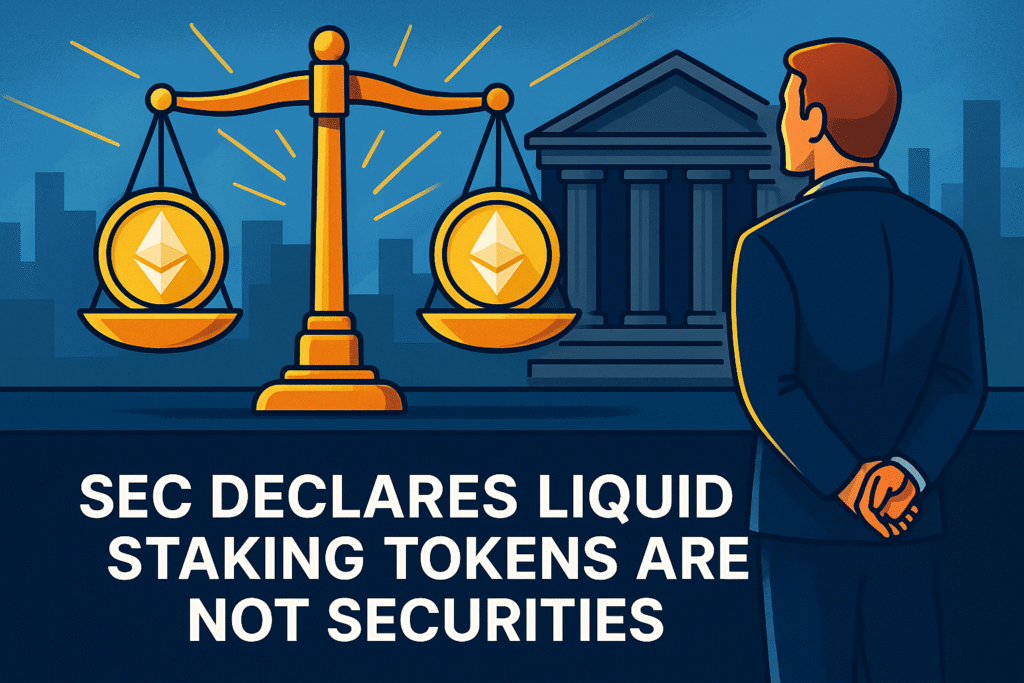
SEC Declares Liquid Staking Tokens Are Not Securities
In a statement that could reshape the regulatory trajectory of decentralized finance (DeFi), the U.S. Securities and Exchange Commission (SEC) has confirmed that liquid staking tokens (LSTs) are not classified as securities under existing federal law. The announcement sent a wave of optimism throughout the crypto sector, especially among Ethereum-based DeFi projects.
What Are Liquid Staking Tokens?
Liquid staking tokens are assets that represent staked cryptocurrencies—most commonly ETH—while allowing users to retain liquidity and access to DeFi protocols. Services like Lido Finance, Rocket Pool, and Coinbase’s cbETH are prominent issuers of LSTs. They let users stake Ethereum for consensus rewards, while still using the tokenized version (e.g., stETH) in trading, lending, and yield farming activities.
This dual-function utility raised concerns at the SEC, which historically viewed anything yielding a profit as potentially falling under securities law. However, in a significant reversal, the commission has clarified that as long as the staking mechanism remains decentralized and not promoted as an investment contract, these tokens do not meet the definition of a security.
Market Response and Implications
The market responded swiftly to the news. Several DeFi tokens experienced minor gains, and Ethereum’s staking volume on Lido increased by over 4% within hours. Legal experts are calling this a landmark interpretation that could protect DeFi builders from burdensome registration requirements and litigation.
While this declaration does not guarantee blanket immunity, it does offer a strong legal signal to developers, exchanges, and users who feared crackdowns over liquid staking operations.
How This Impacts You and the Crypto Ecosystem
For users, the SEC’s clarification provides peace of mind. You can now interact with LST platforms like Lido, Frax, and Coinbase with greater confidence. For developers, it opens the door to building new financial tools without the looming threat of a securities violation.
The ruling also underscores a subtle but important shift in U.S. regulatory posture toward DeFi. Rather than imposing broad bans, the SEC appears willing to take a case-by-case approach a signal that the evolving crypto economy may yet find a balanced path through regulation.

